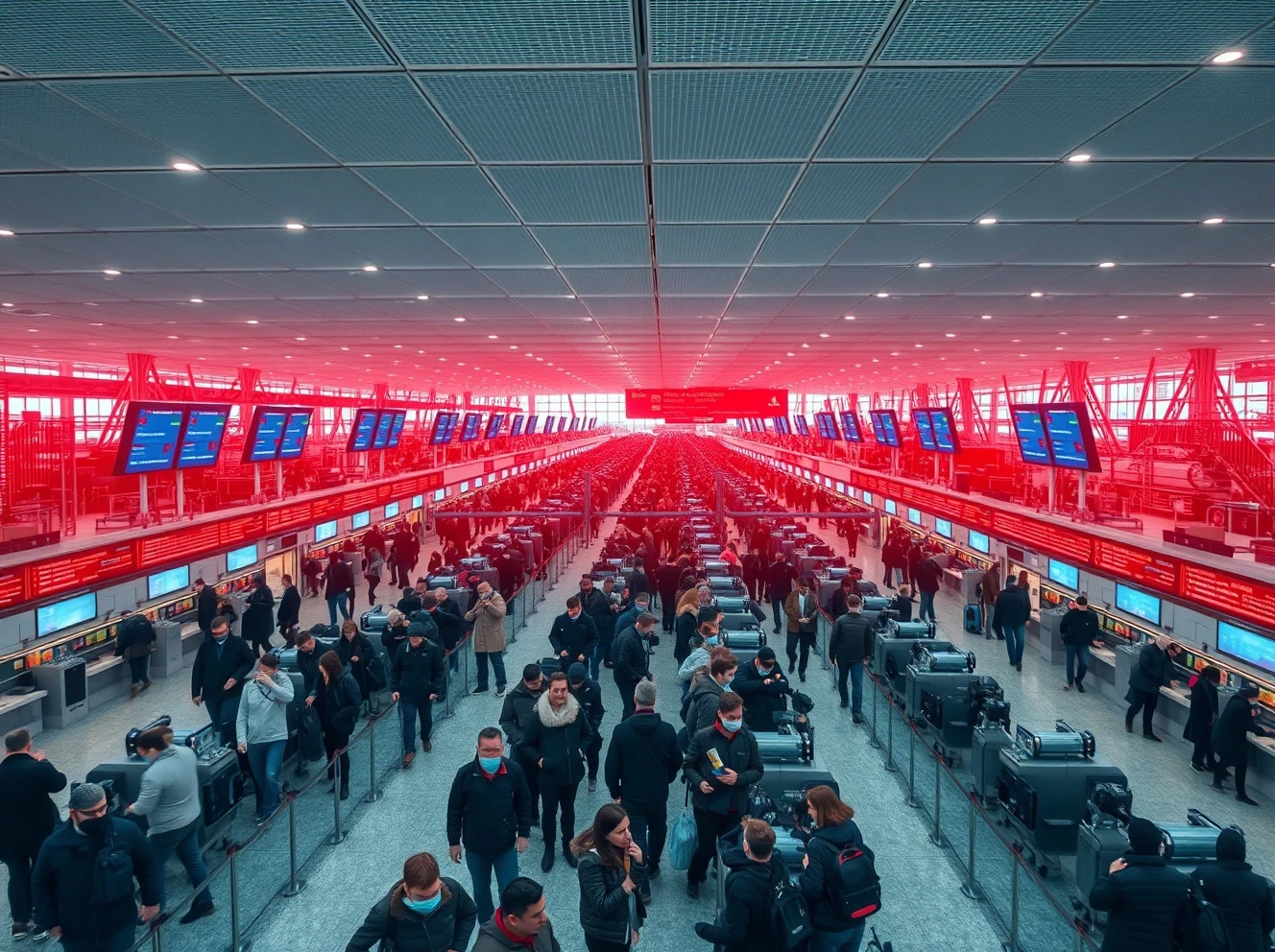A devastating ransomware attack continues to cripple major European airports, causing widespread flight disruptions and passenger chaos for the fourth straight day. The cyberattack targeting Collins Aerospace’s check-in systems has exposed critical vulnerabilities in aviation infrastructure, leaving thousands of travelers stranded across the continent.
Major Airport Operations Disrupted by Ransomware Attack
The sophisticated ransomware attack has severely impacted operations at some of Europe’s busiest transportation hubs. According to live data from FlightRadar24, the situation remains critical:
- London Heathrow: 90% of flights delayed with 29-minute average delay
- Brussels Airport: 88% of flights delayed with 43-minute average delay
- Berlin Brandenburg: 94% of flights delayed with 60-minute average delay
- Dublin Airport: 91% of flights delayed with 26-minute average delay
European cybersecurity agency ENISA has officially confirmed that the airport disruptions stem directly from the ransomware attack against Collins Aerospace.
Manual Workarounds Implemented Amid Ongoing Crisis
Airport authorities have been forced to implement manual check-in procedures as technicians work around the clock to resolve the IT issues. Dublin airport spokesperson Graeme McQueen confirmed that airlines continue to deploy manual workarounds while efforts to fix the compromised systems continue.
“There is no timeline at the current time for a fix to be implemented,” McQueen stated, highlighting the severity of the ransomware attack’s impact on critical aviation infrastructure.
Airport Responses and Passenger Advisory
Brussels Airport has warned passengers to expect “limited disruptions” throughout Tuesday and Wednesday. The airport’s official website indicates that the service provider is actively working to resolve the problem as quickly as possible.
Berlin’s airport website displays warnings about “longer waiting times” as the ransomware attack continues to affect check-in and boarding systems. Meanwhile, Heathrow, Brussels, and Berlin airport spokespeople have not responded to requests for comment regarding the ongoing situation.
Cybersecurity Implications of Aviation Ransomware Attack
This ransomware attack represents one of the most significant cybersecurity incidents affecting European aviation infrastructure in recent years. The attack demonstrates how critical service providers like Collins Aerospace can become single points of failure in complex transportation networks.
RTX, the parent company of Collins Aerospace, has not provided updates on the recovery status following the cyberattack. The prolonged disruption raises serious questions about cybersecurity preparedness in critical infrastructure sectors.
Frequently Asked Questions
What caused the airport disruptions in Europe?
The disruptions resulted from a ransomware attack targeting Collins Aerospace, which provides check-in systems to multiple European airports.
Which airports are most affected by the ransomware attack?
Heathrow, Brussels, Berlin Brandenburg, and Dublin airports are experiencing the most significant delays, with over 88% of flights affected at each location.
How long will the airport disruptions last?
There is currently no timeline for full resolution. Dublin airport officials confirmed they cannot provide an estimated fix time.
What are airports doing to manage the situation?
Airports have implemented manual check-in procedures and workarounds while Collins Aerospace works to restore their systems.
Has ENISA confirmed the cause of the disruptions?
Yes, the European cybersecurity agency has officially confirmed the disruptions stem from the ransomware attack.
Are other European airports affected by this incident?
While the mentioned airports are most severely impacted, other airports using Collins Aerospace systems may experience secondary effects.








